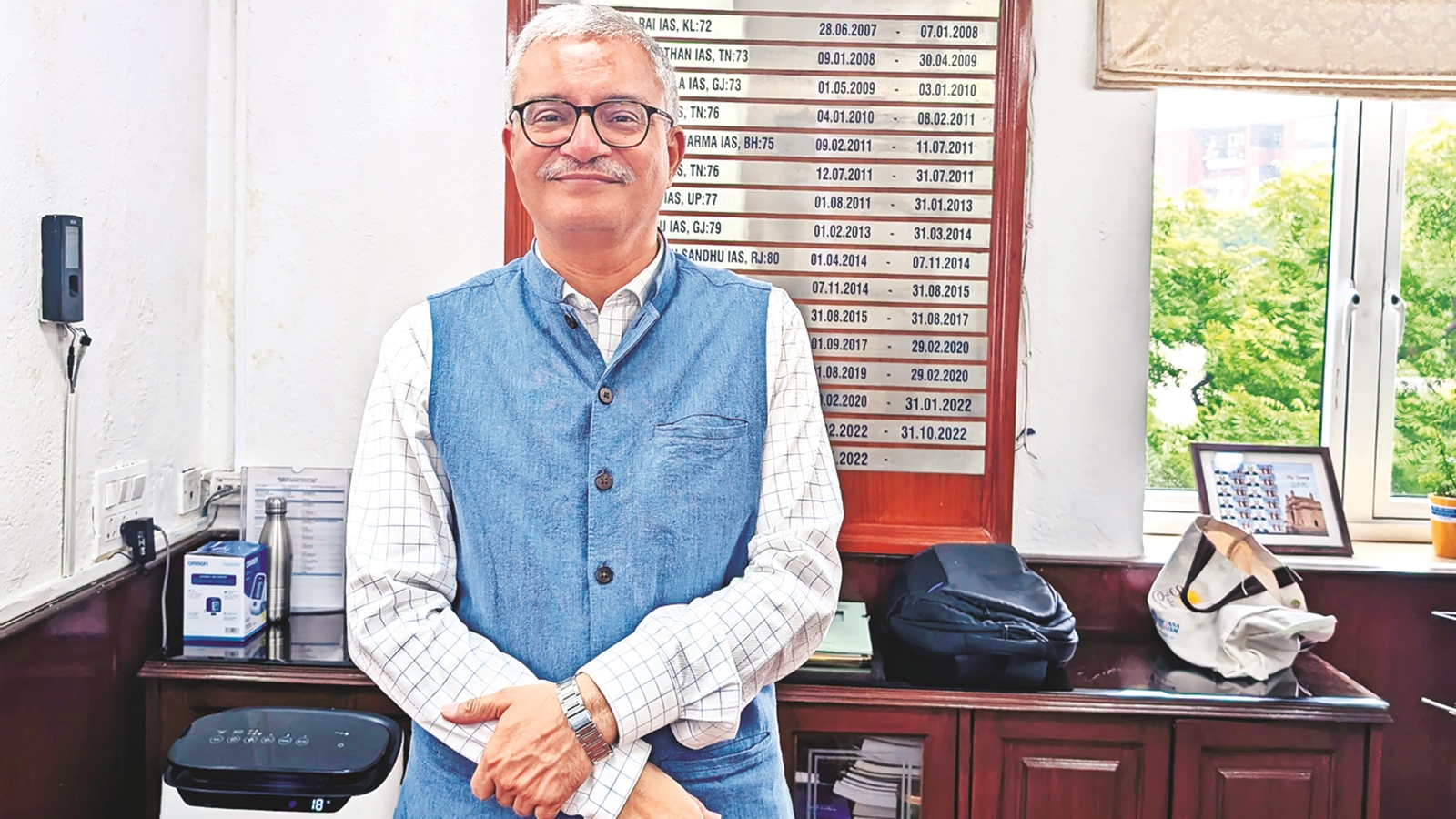Private Banks not lending enough to corporates a concern: DFS Secretary | Business News

Private Banks not lending enough to corporates a concern: DFS Secretary | Business News
Private banks are not lending enough to the corporate sector and much of the loan disbursements are being undertaken by a handful of the Public Sector Banks (PSBs), Department of Financial Services (DFS) Secretary Vivek Joshi said in an interview with Ravi Dutta Mishra, Aanchal Magazine & Hitesh Vyas in New Delhi.
Joshi said that the gap between deposit and credit growth is widening but the Current Account Saving Account (CASA) ratio for scheduled commercial banks is still at a healthy 41 per cent. However, the ratio should not fall below 40 per cent and so banks must improve efficiency. Edited Excerpts:

There has been a concern regarding low recovery rate in unsecured loans. Also, borrowed money is being diverted to the stock market. Your thoughts?
Recovery in small loans is pretty good, especially by PSBs, as they extend unsecured loans mostly to salaried people. In rare cases, there is a default. The nature of default is unintentional often due to a change in the corporate account or address typically when a person relocates from one city to another.
The Reserve Bank of India (RBI) did notice that growth in unsecured loans is rapid, especially in private banks and that is why risk weights were hiked. But, I am not sure if this money is going into the stock market. To assume that the entire sum of unsecured loans is moving into the stock market may not be right because individual unsecured loan amounts are low.
The delinquency level in sub-Rs 50,000 loans are rising…

The delinquency level in PSBs (in sub-Rs 50,000 loans) is as low as 2-4 per cent. They resist giving out unsecured loans. They usually check the borrowers savings accounts. To limit delinquency, RBI has increased rates (risk weights), so that banks and non-bank financial companies (NBFCs) extend loans after due diligence.
RBI may be concerned as they need to look at the entire sector. But if banks extend loans to the retail sector only and not to corporates, how will jobs be created? That could be a concern (for RBI).
Today, banks are hesitating in extending loans to corporates. The retail sector is dependent on corporates. Private sector banks are not giving enough loans to corporates. Loans are given to corporates by PSBs and that too by a few banks that have muscle. These few PSBs are driving infrastructure growth.
Have you conveyed your concerns to the banks?
We have requested RBI to nudge other (private) banks too.
Deposit growth is lagging credit growth. We are seeing household savings moving from banks to other instruments like mutual funds, insurance or pension funds.
Money is moving from savings accounts to mutual funds. But they are within the banking system. It may not be available to the banks as a Current Account Savings Account (CASA)…that is possible.
The deposit growth is around 12 per cent and credit growth is around 15-17 per cent. So there is a gap and it will always be there. Perhaps, this gap has widened. At present, CASA is at 41 per cent for all scheduled commercial banks. At its peak in 2017-18, CASA was 45 per cent. In 2015 and 2016, it was 36 per cent to 38 per cent. So, it should not cause a problem. Other countries have similar levels. CASA ratio of 40 per cent is decent. The worry is that CASA should not fall below 40 per cent and for which banks will have to come out with innovative products and improve efficiency.
Is there any discussion to meet the minimum public shareholding norm in PSBs?
Discussions are ongoing. We have done it in 3 banks and 5 banks are left. We have time till August. But we have sought more time from the Department of Economic Affairs (DEA) to deal with it. Generally, two years is given (to meet the minimum shareholding norms). The gap is ranging from 97 per cent to 98 per cent. If the Bank of Maharashtra tries, it can meet the MPS norm. We can reduce it in other banks but to assume that all five banks will meet the norms…it (amount) would be very big and banks should also have that kind of appetite to absorb.
The budget announced two funds for MSMEs. What is the corpus?
We are working out the details. This will depend on the non-performing assets (NPAs). NPAs in MSMEs is approximately 4 per cent (as of March 31, 2024). The total outstanding loan to MSMEs is about Rs 28 lakh crore. So, default rates need to be assessed.





